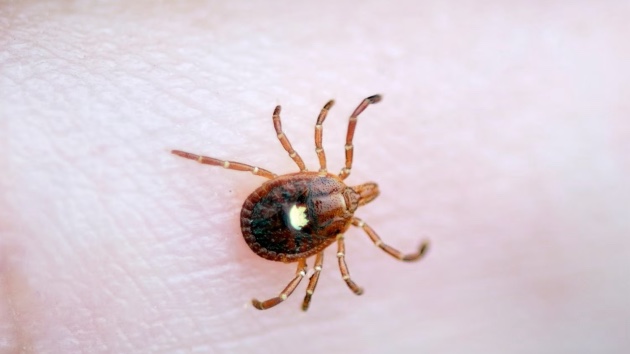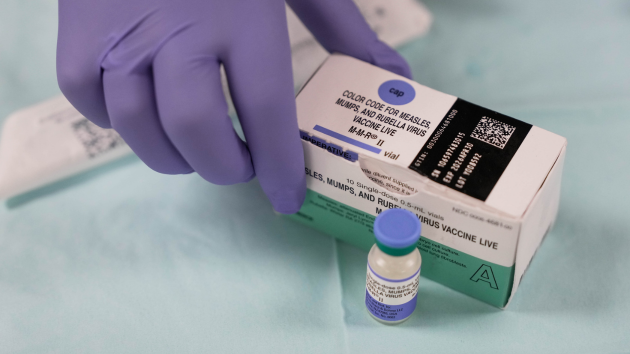New Jersey man believed to be 1st known death from red meat allergy linked to tick bites
Written by ABC Audio ALL RIGHTS RESERVED on November 14, 2025

(NEW YORK) — A New Jersey man is believed to be the first documented death from alpha-gal syndrome, a meat allergy triggered by tick bites.
The man, a 47-year-old airline pilot, was otherwise healthy, according to a case study from researchers at the University of Virginia School of Medicine and Hackensack Meridian Health in New Jersey.
In summer 2024, he went camping with his wife and children. A few hours after eating beef steak for dinner, the man awoke with abdominal discomfort, which later led to diarrhea and vomiting.
His condition eventually improved and, although he spoke with his wife about consulting a doctor, they ultimately decided against it.
Two weeks later, in September, the man and his wife attended a barbecue in New Jersey during which he ate a hamburger.
Four hours later, the man was found unconscious on the floor of his bathroom. Paramedics attempted to resuscitate the man and transferred him to a hospital, where he was later pronounced dead.
The cause of death was initially ruled as “sudden unexplained death” after inconclusive results. The man’s wife provided the autopsy report to a doctor, who forwarded it to an allergy specialist.
The specialist used blood samples to identify that the man had an extreme reaction to alpha-gal, in line with fatal anaphylaxis, or allergic reaction, according to the case study published in the Journal of Allergy and Clinical Immunology in Practice.
When asked if he had been bitten by ticks, his wife said he had in the past and that, earlier in the summer, he has at least 12 or 13 “chigger” bites around his ankles. Researchers said that in the eastern U.S., what are sometimes referred to as “chiggers” are often larvae of lone star ticks.
Alpha-gal syndrome (AGS) is a serious, potentially life-threatening allergic reaction that arises after people eat red meat or consume products with alpha-gal, a type of sugar found in most mammals, according to the Centers for Disease Control and Prevention (CDC).
The syndrome is typically caused tick bites, most often from lone star ticks, which transfer alpha-gal into a patient’s body and, in turn, triggers an immune system response.
Although tracking is limited, it is estimated that more than 110,000 cases of AGS were identified between 2010 and 2022, the CDC said.
The actual number of cases is not known, but up to 450,000 people may be affected, according to the agency. In 2023, two studies from the CDC referred to AGS as an “emerging public health concern.”
AGS symptoms can include hives or itchy rash, nausea or vomiting, heartburn or indigestion, diarrhea, shortness of breath and severe stomach pain. Symptoms can range from mild to severe and typically occur two to six hours after consuming products with alpha-gal.
The CDC says the best way to protect against AGS is to prevent tick bites. This includes knowing where to expect ticks, such as in wooded areas; treating clothes and gear with products containing the insecticide permethrin; and walking outside in the center of a trail as opposed to a brushy area.
Copyright © 2025, ABC Audio. All rights reserved.
 KVSP
KVSP 




